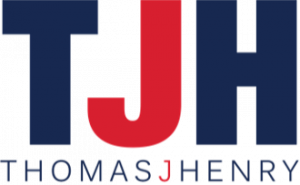Texas Cracks Down on Online Legal Lead Generators: H.B. 2733 Expands Criminal Liability for Digital Solicitation
NEW YORK, NY, UNITED STATES, August 7, 2025 /EINPresswire.com/ -- With the passage of House Bill 2733 during the 89th Texas Legislature, the state has enacted a new tool against unethical solicitation in the legal services market. The bill expands Texas Penal Code § 38.12 to include digital, electronic, and social media-based solicitation, particularly where such outreach is deceptive or financially motivated.
This legislative update comes in response to the growing use of pay-per-lead aggregator models: third-party lawsuit advertisers that harvest legal leads via texts, social media, or misleading online content, and sell them to law firms on a per-case or per-client basis. These aggregators, often operating in legal grey areas, now face third-degree felony exposure under the new amendments.
What H.B. 2733 Changes:
• Criminalizes Electronic Barratry: Any false, misleading, or deceptive online communication made to solicit legal services is now criminal under § 38.12(a)(2).
• Expands Liability: The law imposes criminal liability on aggregators who solicit clients in exchange for compensation, directly or indirectly, aiming to curb profit-driven legal solicitation.
• Civil Penalties Escalating: Barratry already carries a civil penalty of up to $10,000 per violation, with new legislation (H.B. 4325) aiming to raise this to $50,000.
• Extends Risk to Law Firms: Lawyers who knowingly accept cases through illegal solicitations may also face criminal liability under § 38.12(b)(3).
Why This Matters to the Legal Profession:
This statute closes loopholes and puts every participant in the lead-generation pipeline, from the initial social media poster to the law firm that accepts the client, under a heightened duty of compliance.
Mass social media advertising with misleading claims, aggressive direct messaging, and call center scripts, posing as law firms have not only misled consumers, but have also undermined the integrity of the personal injury bar.
With the passage of H.B. 2733, Texas lawmakers are signaling their intent to drive non-compliant case aggregators out of the market.
About Thomas J. Henry:
Thomas J. Henry Law is one of the largest personal injury firms in Texas, known for taking on high-stakes cases involving 18-wheeler and commercial vehicle accidents, catastrophic injuries, wrongful deaths, and large-scale product liability claims.
Thomas J. Henry is a prominent personal injury attorney who grew up in Corpus Christi, Texas, with a reputation for aggressive advocacy and a client-centered approach. His firm has successfully represented clients in complex cases across the nation, securing substantial verdicts and settlements. Beyond his legal practice, Thomas J. Henry is deeply committed to community service and philanthropic endeavors that contribute to the well-being and development of the Coastal Bend region.
For more information about Thomas J. Henry please visit thomasjhenrylaw.com.
I: @tjhlaw | F: tjhlaw | X/T: @ThomasJHenryLaw

This legislative update comes in response to the growing use of pay-per-lead aggregator models: third-party lawsuit advertisers that harvest legal leads via texts, social media, or misleading online content, and sell them to law firms on a per-case or per-client basis. These aggregators, often operating in legal grey areas, now face third-degree felony exposure under the new amendments.
What H.B. 2733 Changes:
• Criminalizes Electronic Barratry: Any false, misleading, or deceptive online communication made to solicit legal services is now criminal under § 38.12(a)(2).
• Expands Liability: The law imposes criminal liability on aggregators who solicit clients in exchange for compensation, directly or indirectly, aiming to curb profit-driven legal solicitation.
• Civil Penalties Escalating: Barratry already carries a civil penalty of up to $10,000 per violation, with new legislation (H.B. 4325) aiming to raise this to $50,000.
• Extends Risk to Law Firms: Lawyers who knowingly accept cases through illegal solicitations may also face criminal liability under § 38.12(b)(3).
Why This Matters to the Legal Profession:
This statute closes loopholes and puts every participant in the lead-generation pipeline, from the initial social media poster to the law firm that accepts the client, under a heightened duty of compliance.
Mass social media advertising with misleading claims, aggressive direct messaging, and call center scripts, posing as law firms have not only misled consumers, but have also undermined the integrity of the personal injury bar.
With the passage of H.B. 2733, Texas lawmakers are signaling their intent to drive non-compliant case aggregators out of the market.
About Thomas J. Henry:
Thomas J. Henry Law is one of the largest personal injury firms in Texas, known for taking on high-stakes cases involving 18-wheeler and commercial vehicle accidents, catastrophic injuries, wrongful deaths, and large-scale product liability claims.
Thomas J. Henry is a prominent personal injury attorney who grew up in Corpus Christi, Texas, with a reputation for aggressive advocacy and a client-centered approach. His firm has successfully represented clients in complex cases across the nation, securing substantial verdicts and settlements. Beyond his legal practice, Thomas J. Henry is deeply committed to community service and philanthropic endeavors that contribute to the well-being and development of the Coastal Bend region.
For more information about Thomas J. Henry please visit thomasjhenrylaw.com.
I: @tjhlaw | F: tjhlaw | X/T: @ThomasJHenryLaw
Norah Lawlor
Lawlor Media Group, Inc.
+1 212-967-6900
email us here
Visit us on social media:
LinkedIn
Instagram
Facebook
X
Legal Disclaimer:
EIN Presswire provides this news content "as is" without warranty of any kind. We do not accept any responsibility or liability for the accuracy, content, images, videos, licenses, completeness, legality, or reliability of the information contained in this article. If you have any complaints or copyright issues related to this article, kindly contact the author above.

